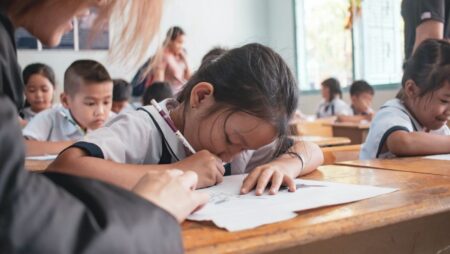Pandemic Lifestyle has worsened the Mental Health situation of small income groups. The small and unstable income group was already suffering from the country’s scarcities of opportunities and mental well-being. The now turning two years long Covid Pandemic has worsened the situation.
The already suffering household groups have seen an immense rise in insomnia, fear, anxiety, stress, depression, and anger. Children with no space and facilities have been affected the worse.
The older age group, people with mental illness, and the frontline workers were most vulnerable.
UNICEF’s report has stated that around 14% of 15 to 24 years old in India, or 1 in 7, have often felt depressed.
The grief and depression resulting from losing a loved one, fear of the uncertain future and financial crisis may lead individuals to resort to these extreme measures during such times.
Multiple cases of non-covid deaths were reported last year. Many healthcare workers, migrant labourers and patients in the quarantine centres committed suicide in the anxiety of lockdown, panic of the disease, and work stress and over-exhaustion.
WHO assesses the burden of the mental health crisis in India as 2443 disability-adjusted life years per 100 00 population, and the age-adjusted suicide rate per 100 000 population is 21.1. The economic loss due to mental health conditions ( 2012-2030) is estimated at 1.03 trillion US Dollars.
Income Effect
Where the Pandemic was just an inconvenience for the high income for a while and later resulted in a considerable profit, financially and socially, it demolished all available sanity and freedom in the low-income group households.
While in Pandemic, the rich got to “relax and enjoy life” in their farmhouses with huge pools and gardens, all members of the low-income families were packed in a small house with no room to breathe personal air or money left in the pocket for future comforts and education.
(IMAGE: MOVIE, PARASITE)
Social Media Effect
With no space in real life, the middle earner family’s faces are stuck to the screen all the time for entertainment, education, or for the news. The constant consumption of the better views of rich life and news of poor dying from lack of health facilities may cause bitterness in the mind of the youth.
“Social Media has mixed reaction”, The Instagram noted, indicating to the positive communities in the social media that provides information and help to the public, and to the hostile communities who only fill hatred, jealousy, and the fear of the unknown on the people, for their benefits.
System

Education System
Students have been affected the most by the Pandemic. Most of the classes were shifted online. The school authorities cast out some who didn’t have the facilities to avail gadgets or pay increased fees despite not paying salaries to their teacher.
School is a source of education, and an escape from abusive households for some and online classes had stolen that little space from the kid’s life, affecting their physical and mental health.
Media System
In the case of every Pandemic outbreak, the symptoms of Post-Traumatic Stress Disorder (PTSD) and anxiety-depression follows, and the current news culture of gaining views through fueling hatred and constant state of anxiety in public is going to worsen the situation in the country.
The thriving culture of witch-hunting and insulting someone’s mental conditions and issues has also negatively affected the country’s mindset towards mental health.

Health System
The social stigma of mental illness is sometimes encouraged by our health authorities too when they start to promote unauthorized medications, exploiting the anxiety of the public in stressful situations.
Mental Health needs to be addressed responsibly by the rules, informing the public with natural conditions, precautions, and suggestions.
In a survey by UNICEF and Gallup with 20,000 children and adults in 21 countries, it was observed that only 41% of youth between 15-24 age group in India supports getting help for mental health problems, which was very low compared to the high percentage the other countries.
The social system of India and its mentality towards mental illnesses has resulted in the health care backwardness and lack of government incentives to inform the public about the conditions of India’s deteriorating mental health, its reasons, and its treatments.
In a world where climate change is creating vast destruction every day, creating a fearful mindset among the gen-z of the future, there are very few actions to tackle the problems of resources and pollution or awareness and treatment of mental health.













